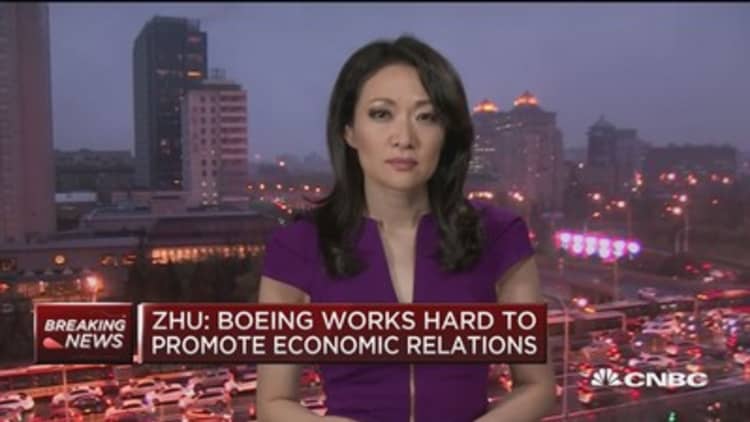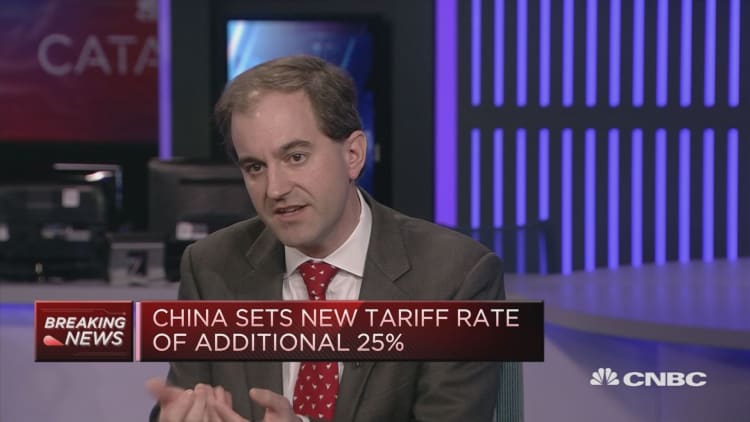
China may not want a trade war but it will hit back when provoked, Chinese Vice Finance Minister Zhu Guangyao told CNBC's Eunice Yoon on Wednesday.
"We must take some retaliation when people damage our interests," Zhu said, explaining the sweeping new tariffs his government announced on $50 billion worth of U.S. goods on Wednesday.
The new measures, which target 106 American products, are the latest in a rapidly intensifying tit-for-tat trade tussle first sparked by the Trump administration's decision to implement large tariffs on all steel and aluminum imports in early March. The goods in question include major U.S. exports like soybeans, cars and whiskey.
China's move comes less than 24 hours after President Donald Trump unveiled a list of Chinese imports that his administration aims to target as part of a crackdown on what the president deems unfair trade practices. Those include products used for robotics, information technology, communication technology and aerospace.
"No people can expect China to swallow everything which damages our legitimate interest. That's a principle we must follow," the vice minister said, while emphasizing that China does not want a trade war and hopes to find a "constructive way" to solve to the current impasse.
"It is time for the U.S. administration to change sides back to the right track, keep real dialogue with the Chinese side," he said. "We hope that we can work together."

American soybeans: a $14 billion trade
One important flash point is soybeans — China is the world's largest soybean importer, and the U.S. is its second-largest supplier. The industry employs more than 300,000 farmers in the States, but is similarly crucial to Chinese pork farmers who depend on the crop for pork production. U.S. soybean trade with China in 2016 was worth $14 billion.
Is China willing to take that hit in order to levy the retaliatory tariffs? Yes, according to the vice minister, who said that they could always turn to other trading partners like Brazil and Argentina for increased soybean imports.
"Yes indeed we need U.S. soybeans, however China is the largest consumer country for soybeans; there are many countries (that can) export more to China," Zhu said.
"We value our relations with U.S. farmers, we know they strongly support economic relations," he went on. Indeed, the American Soybean Association in March strongly criticized the White House's tariff moves, warning of potential harm to U.S. agriculture as a consequence and calling the levies "a disastrous course of action."
"We hope they can benefit through our constructive dialogue and through our strong economic relations," Zhu added. "That's why we want to assess a new idea in (a) constructive way, to solve the problem, (for) real benefit to U.S. farmers, to Chinese farmers."
—CNBC's Sam Meredith contributed to this report.


